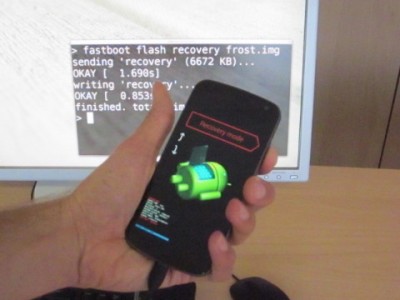 These days the bug that allows the removal of the passcode in iOS 6.1 was on the attention of many owners of mobile terminals, but the problem of those from Apple is not unique. A team of German researchers succeeded to remove the passcode of a Galaxy Nexus by freezing the terminal. The attack used by them is called "cold boot" and it was initially used in 2008 on PCs. Everything is based on the fact that the RAM memory of the terminal retains part of the information when the device is turned off and on quickly, the German researchers managing to benefit from this information to exploit the device.
These days the bug that allows the removal of the passcode in iOS 6.1 was on the attention of many owners of mobile terminals, but the problem of those from Apple is not unique. A team of German researchers succeeded to remove the passcode of a Galaxy Nexus by freezing the terminal. The attack used by them is called "cold boot" and it was initially used in 2008 on PCs. Everything is based on the fact that the RAM memory of the terminal retains part of the information when the device is turned off and on quickly, the German researchers managing to benefit from this information to exploit the device.
As it turns out, phones are vulnerable to the same kind of attack, but they require a different approach. Smartphones also retain information in memory after shutdown, but only for a second or two. It's also more difficult to shortchange the shutdown process in a phone because it power-cycles too slowly by default for a two-second memory access window to be useful. The researchers in Germany found that if they chilled the phone down to freezing temperatures, information will linger in the memory for five or six seconds—long enough to pull data out with a computer.
Of course, the method is not as simple as the one discovered in iOS, but it could be impossible to repair through a software update, as will happen in the case of iDevices.
















